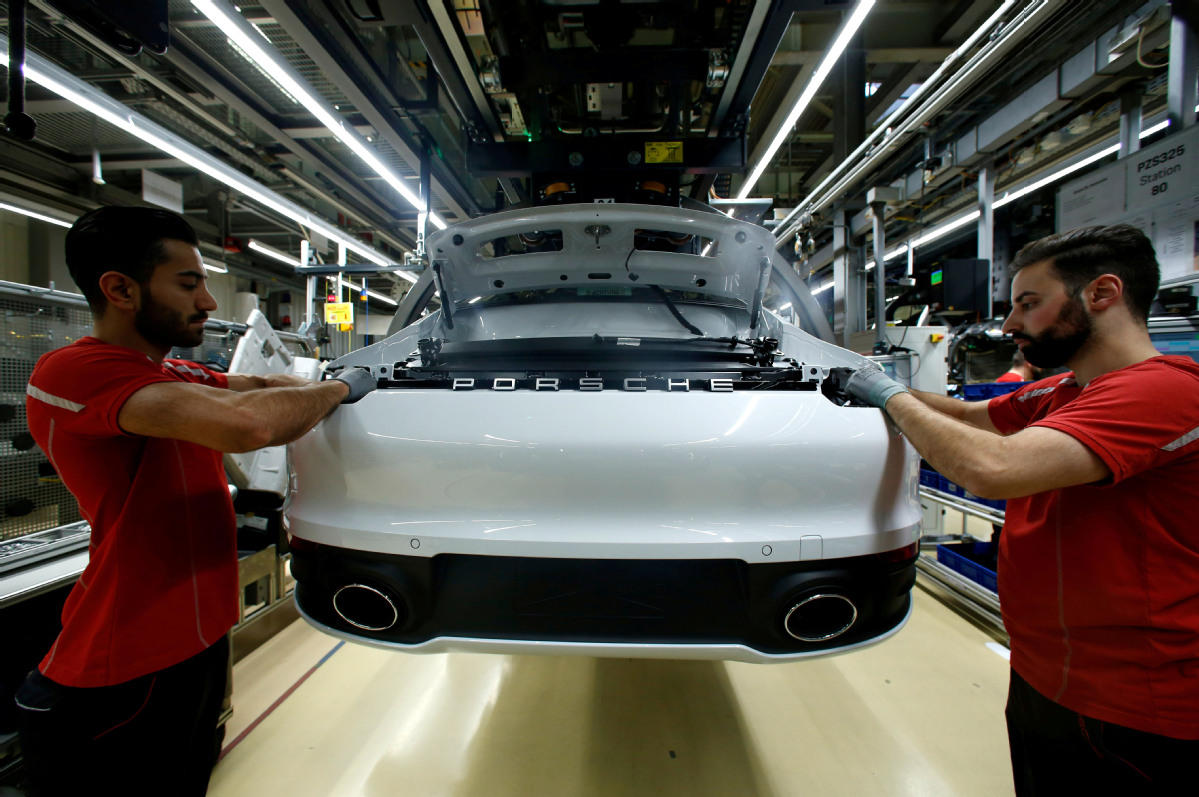Germany in bid to turn the corner


After dodging recession in 2019, Europe's top economy needs overhaul, experts say
The German economy has just bade farewell to a troubled 2019, but while some believe the worst is behind it, Europe's growth engine still faces internal and external headwinds, analysts said.
Economic expansion of just 0.6 percent last year marked the slowest pace since 2013, due to lower demand for German exports combined with sluggish manufacturing output and the fallout from trade disputes, the Federal Statistics Office said.
Still, statistics official Albert Braakmann said the region's biggest economy had sustained growth for the 10th straight year, clocking up "the longest growth period since German reunification" in 1990.
Private consumption, state spending, and construction supported the economy's expansion, but the manufacturing sector has been a drag on its performance.
Growth of just 0.1 percent in the July-September quarter sparked widespread fears that the economy would end 2019 in recession-a fate it narrowly avoided with a slightly improved performance in the following quarter. But expansion for the calendar year came in much lower that the rates of recent years, including the 1.5 percent gain notched in 2018.
"The German economy has already gone through the worst, but it is still too early to say if it has entered a recovery mode," said Chen Fengying, a senior researcher on the world economy at the China Institutes of Contemporary International Relations. "If the economy can stabilize itself, that would be the best scenario for now."
Chen said the German economy is export-dependent and is reliant on the manufacturing sector, which was affected by the global economic slowdown, trade disputes and the uncertainties over Brexit last year.
The researcher noted that every industry has its own economic development cycle. After more than 10 years of growth, Germany's manufacturing sector now needs structural reforms and adjustments.
"Germany has a rigid idea of not using fiscal stimulus to boost the economy and, externally, it will encounter some restrictions in making economic policies as a member of the eurozone," she said. "Thus, Germany has failed to respond quickly to the changing economic situation."
Although the economy slowed last year, Germany's public finances posted a record surplus of $15 billion. As for how to spend the budget surplus, conservatives in Chancellor Angela Merkel's ruling coalition are calling for corporate tax cuts, while center-left Finance Minister Olaf Scholz favors more public investment.
He Yun, an assistant professor at Hunan University's School of Public Management, said that 2019 proved how resilient the German economy is. "With the Brexit deal passed and phase one of the China-US trade deal signed now, the German economy is likely to stabilize this year, and will continue to be a stabilizing force within the eurozone," she said.
Service sector
However, there are still risks associated with the German and eurozone economies in 2020. Aside from the sluggishness of manufacturing, there are signs that the service sector in Germany is heading for a downturn, He said. This would likely affect hiring and result in weaker consumer demand.
The European Union and the United States have been embroiled in trade disputes since last year, and whether the tensions will ease remain uncertain. And although a Brexit deal is in place, negotiations for a trade agreement between the United Kingdom and the EU face steep hurdles.
In the face of these challenges, Chen said Germany should speed up reforms in the manufacturing sector, and the development of high-end intelligent manufacturing would take it in the right direction.
She said that the German and global economies in 2020 will perform "a little bit better" than they did last year. Chen expects the major powers will be more cautious and seek to avoid worsening trade disputes or do other actions that have the potential to hurt all countries.
"The US and the EU are likely to make cautious moves to avoid an escalation in their disputes, as US President Donald Trump has an election to face and the EU has the Brexit deal to settle at home," she said.
As for the UK's imminent exit from the EU, Chen said she believes that both sides will seek to minimize any negative influences on the economy brought about by the breakup.
Reuters contributed to this story.

































